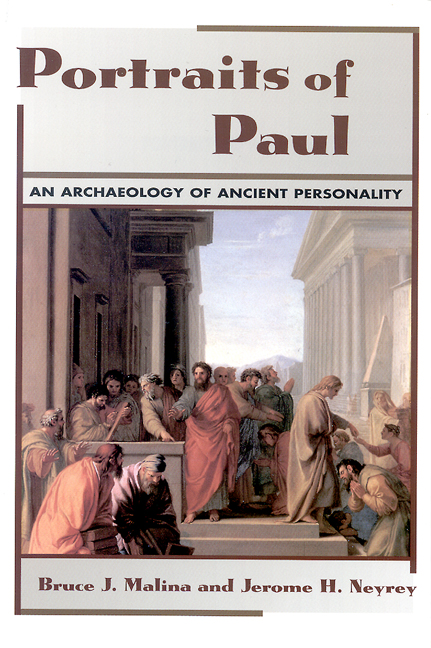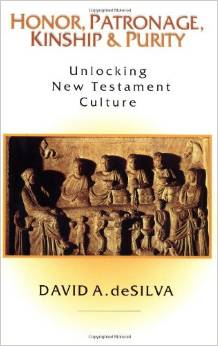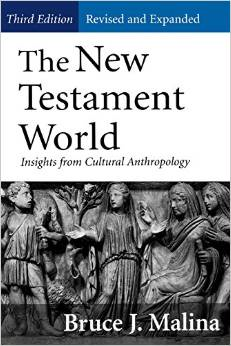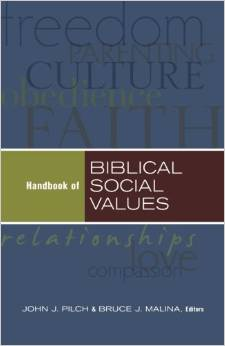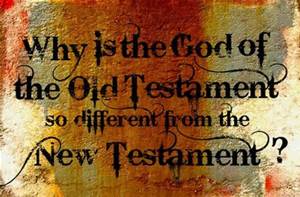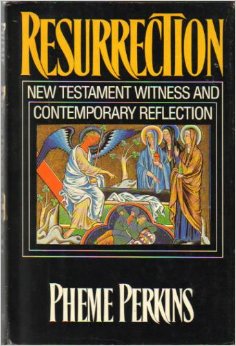Have ever thought to yourself, “What the fuck, who actually says that?” while looking at Facebook? Then you’re probably familiar with the blogger Matt Walsh.
Matt Walsh the blogger—not to be confused with Matt Walsh the actor—was a conservative talk radio host before he turned to blogging full time in 2012. A devout Catholic with a severe fundamentalist approach to theology, in 2014 he was adopted by The Blaze as a regular contributor. Since then his wonderful articles, with titles such as “The Duggars Aren’t Hypocrites. Progressives Are” and “Calling Bruce Jenner a Woman Is an Insult to Women” have surged in popularity.
Walsh, a 28-year-old married father of two from the Baltimore area, writes with a level of arrogance that makes Bill O’Reilly look like a monk. As the mighty defender of the majority, he offers a much-needed perspective for heterosexual, white, American men. Walsh is the cool Christian millennial for oppressed conservatives everywhere. He drinks! He smokes! He has tattoos! He’s not like those other stuffy right-wingers. If you feel like today’s conservative Christian pundits are just too kind and tolerant, don’t worry: Walsh thinks Christians should be more judgmental.
Pandering to the masses of right-wing fundamentalists, Walsh responds to current issues with a degree of moral outrage that asserts the stupidity and wrongness of anyone who disagrees with him, regularly touting that “liberals” and “progressives” are the ultimate enemy against God and country. Wait, what if you’re a Christian and a progressive? Don’t raise your hand, because Matt Walsh doesn’t think you really exist: he’s fully prepared to determine whether you’re a Christian or not. But his perspectives aren’t actually based in theological truth, much less Christian love.
I’ve taken some of Walsh’s more asinine viewpoints and put them side-by-side with passages from the Bible. I ask, and attempt to answer, in all sincerity: What would Jesus think?
Matt Walsh Thinks Transgender People Are Ill. Jesus Said They Should Live the Way They Want.
Walsh doesn’t just believe transgender people should have equal rights; he believes they aren’t real. In his most recent article discussing Caitlyn Jenner’s debut in Vanity Fair, Walsh wrote that her transition was an “appropriation of womanhood” and described his horror as he was forced to sit through descriptions of her photo shoot on ESPN:
You know, if I want to be preached at by humorless progressive gasbags, I don’t need the worldwide leader in sports. I have Comedy Central for that.
In another article about Jenner, Walsh described being transgender as “an illusion, a sickness, and a burden.” When Planet Fitness made headlines this spring by revoking a woman’s membership when she complained about a transgender woman in the ladies’ locker room, Walsh accused them of not respecting the privacy and safety of women. He also thinks that fighting transphobia is going to kill America, pretty much:
If progressives can wield the power to demolish and remake even the definition of “man” and “woman” in their ideological image, then they have achieved a total and irreversible cultural victory. They have reached into the universe and reshaped reality itself. They have become gods, or at least that’s the kind of power we give them. You can blab on and on about economics and foreign policy, but if we live in a country where confusion, perversion, and self-worship reign supreme, what’s the point? America will already be dead.
Where does Walsh’s self-assurance come from? Certainly not Christianity. The words and concepts for transgender individuals don’t exactly appear in the Bible. While many fundamentalists take this to mean that God intended all people to be cisgender and heterosexual, that does not mean that there were only binary gender systems in place. In fact, in Matthew 19:11-12, Jesus addresses the subject directly:
Jesus replied, “Not everyone can accept this word, but only those to whom it has been given. For there are eunuchs who were born that way, and there are eunuchs who have been made eunuchs by others—and there are those who choose to live like eunuchs for the sake of the kingdom of heaven. The one who can accept this should accept it.”
I would argue that Jesus himself was not only aware of people who did not identify their gender by their biological sex, but that he actually encouraged those individuals to live in the way they felt most comfortable for the sake of the kingdom of heaven. Let that sink in for a moment. But Walsh argues, of course, that these are not real people, despite the fact that Jesus Christ stated otherwise.
Matt Walsh Thinks Women Belong in the Kitchen. Jesus Thought They Should Be Elevated to the Status of Men.
Walsh believes that his wife’s role is at home rolling him cigars, pouring his bourbon, and raising his children, while his role is to stay at home beating out angry words on a keyboard to affirm bigots’ poorly structured worldviews. Because that’s masculine, and only men should do masculine things. He claims to value the complementary roles that feminism offers, but not really. In one post, he scoffs at couples who live by “egalitarian principles” and charges men to stop letting women be the boss of them:
So, fellas, your wife is not your boss. Or if she is, she shouldn’t be. And, if I may be so bold, I doubt very much that she wants to be.
To women, he writes that incompetent husbands shouldn’t have to earn their wives’ respect, because it’s a woman’s job to make her man feel special:
Every once in a while, I think we should talk about what wives need to do. And here it is. This, above all else. Respect your husbands. Even when he doesn’t deserve it.
In the same post, he bemoans the fact that women these days just aren’t being brought up right:
Society tells our daughters that men are boorish dolts who need to be herded like goats and lectured like school boys. Then they grow up and enter into marriage wholly unprepared and unwilling to accept the Biblical notion that “wives should submit to their husbands” because “the husband is the head of the wife.”
Girls need to know their place right from the start! They have specific gender roles for which they are destined. What are women not destined for, according to Walsh? Pastoring. Being accommodated by your employer during pregnancy. Birth control. The military.
Are you a religious person who is also a feminist? Matt Walsh doesn’t think so. You have to choose, he writes in his post, “Christian women, feminism is not your friend.” Under the guise of “education” he attempts to mansplain why feminism—in all its forms—is a destructive force for humanity, and that if you consider yourself a feminist, you’re ruining your marriage and you don’t love your children:
So I urge you: unbind yourself from the bondage of this term that’s become inexorably tied to a demonic dogma that obliterates the unity of the family, drives a wedge between a wife and her husband, and digs a giant chasm between a mother and her child.
Many Christians, including Walsh, take the approach that women should be submissive to men based on some of Paul’s letters, such as Ephesians 5. These letters, written to specific churches in a specific time period, in no way indicated support for the system of patriarchy in our churches and political systems today: Paul himself said all people were equal in Christ in Galations 3:28—
There is neither Jew nor Gentile, neither slave nor free, nor is there male and female, for you are all one in Christ Jesus.
Elsewhere, Paul also instructed women to keep their heads covered (1 Corinthians 11:6) not to wear jewelry (1 Timothy 2:9) and remain totally silent during church (1 Corinthians 14:34) but those practices seem to have fallen to the wayside—I suppose those are no longer necessary in order to keep women nice and submissive.
By contrast, Jesus’ teachings and interactions with women gave them voices and dignity. Despite the fact that it was extremely controversial for rabbis to even speak to a woman, he did so with regularity. From his conversation with the Samaritan woman that broke through ethnic boundaries (Jews and Samaritans were enemies) to the inclusion of Susanna, Joanna, and other women involved in his ministry, he broke through convention of the time in a bold and radical way.
The most prominent example of Jesus’ adherence to the idea that women should be elevated to the status of men came by way of Mary and Martha, two of his most devoted female followers. When Jesus is teaching, Mary is sitting at his feet, listening. Martha scolds her, and tells her to get to her chores—washing and cleaning, a woman’s duty—and Jesus gently corrects her in Luke 10:41-42—
“Martha, Martha,” the Lord answered, “you are worried and upset about many things, but few things are needed—or indeed only one. Mary has chosen what is better, and it will not be taken away from her.”
To Jesus, it was better that a woman should be involved, educated, and informed: given the same respect and honor as any of his male disciples. Not just toiling away in the kitchen.
Matt Walsh Thinks Gay People are Harmful. Jesus Told His Followers to Stop Being So Judgmental.
“The gays” are probably Walsh’s No. 1 enemy. He doesn’t believe it should be illegal to discriminate against them, he accuses them of the “destruction of the nuclear family,” and he insists that if you harbor gay feelings, you should live a life devoid of intimacy and pleasure and simply choose a different lifestyle. Regardless of the fact that he’s never actually experienced same-sex attraction, he feels qualified enough to order those who do to suppress the urge the same way you repress feelings of anger while doing something you hate (like reading Matt Walsh’s blog).
Jesus said absolutely nothing on the topic of homosexuality, and other clobber verses have been reinterpreted as not being as bigoted as originally thought. Even mainstream evangelicals are accepting same-sex couples into their congregation. But it doesn’t matter to Walsh, who will use any excuse for his obvious disdain of homosexuals in order to remain prejudiced against them.
Worst of all, perhaps, is his stance on gay adoption in his post “Gay Adoption Might Be Good for Gay Activists, But It’s Terrible for Children.” In it, he takes studies that indicated two-parent families were more beneficial to children than single-parent families, and attempted to make it sound as if that somehow proved the ineffectiveness of gay parenting and gay adoption. He likens gay adoption to near child abuse:
For [the children’s] sake, gay adoption should be illegal in every state. There are all kinds of rules in place determining who can adopt children and who can’t. It’s only for political reasons that we move gays from the “can’t” list to the “can.” It has nothing to do with the welfare of the children, as there is, from that perspective, not a single good reason to allow gay people to raise kids.
That’s a pretty shocking perspective to hear from a pro-life Catholic; especially considering all of the Bible verses that command people to care for orphans, like James 1:27—
Religion that God our Father accepts as pure and faultless is this: to look after orphans and widows in their distress and to keep oneself from being polluted by the world.
The fact of the matter is this: gays and lesbians adopt far more often than heterosexual couples. 21.2 percent percent of same-sex couples have adopted children, compared to 4.4 percent of married, opposite-sex couples. That’s a huge difference. By those statistics, gays and lesbians are doing far more to aid orphaned children than heterosexual couples.
Matt Walsh Thinks Poor People are Lazy and Uneducated. Jesus Says the Kingdom of God Belongs to Them.
Fiscal conservatives always believe they have the best grasp on economics, and Walsh is no different. During the fast food strikes last month where workers protested for $15-an-hour minimum wage, Walsh delivered an article with his enlightened opinion: “Fast Food Workers: You Don’t Deserve $15 an Hour to Flip Burgers, and That’s OK.” This is a viewpoint shared by many, but Walsh’s article takes special care to degrade and devalue people working in the fast food business:
It’s come to my attention that many of you, supposedly in 230 cities across the country, are walking out of your jobs today and protesting for $15 an hour. You earnestly believe — indeed, you’ve been led to this conclusion by pandering politicians and liberal pundits who possess neither the slightest grasp of the basic rules of economics nor even the faintest hint of integrity — that your entry-level gig pushing buttons on a cash register at Taco Bell ought to earn you double the current federal minimum wage.
It’s clear that Walsh has never actually talked to a family whose entire livelihood depends on fast food workers’ income. He thinks it’s a temporary situation that can easily be cured by “working hard” and “getting an education,” despite the fact that half a million people with college degrees now work for minimum wage. And he easily ignores the fact that fast food workers regularly have their minimum wages stolen, and in fact, the minimum wage at fast food restaurants costs taxpayers $7 billion a year. Common sense would tell us that, while America’s rich are wealthier than ever, all wages across the board should be increased to allow people to survive without government benefits and to help shrink the increasing income gap. Anyone who practices Christianity, a religion that heavily emphasizes care and value of the poor, would at least agree that people deserve a living wage, right?
Nope, not Walsh. He demonizes the poor with a level of ease that would make Fox News proud and make Jesus weep. The cruelty and ignorance in which he addresses economic issues not only goes against half of Jesus’ ministry, but is in direct defiance of the Roman Catholic Church, of which Walsh is a member. Pope Francis, an outspoken critic of greedy American economic policies, stated:
Some people continue to defend trickle-down theories which assume that economic growth, encouraged by a free market, will inevitably succeed in bringing about greater justice and inclusiveness in the world. This opinion, which has never been confirmed by the facts, expresses a crude and naïve trust in the goodness of those wielding economic power and in the sacralized workings of the prevailing economic system. Meanwhile, the excluded are still waiting. To sustain a lifestyle which excludes others, or to sustain enthusiasm for that selfish ideal, a globalization of indifference has developed.
Walsh speaks out against abortion with regularity, but assuming that a fast food worker became pregnant, he would theoretically be against this child receiving government benefits or its mother receiving a living wage after her likely unpaid maternity leave. That’s not pro-life; that’s pro-birth.
He’s the sort of Christian who follows the “God helps those who help themselves” logic, despite the fact that the saying never appears in the Bible. Here’s what does appear, in Proverbs 31:8-9:
Speak up for those who cannot speak for themselves, for the rights of all who are destitute. Speak up and judge fairly; defend the rights of the poor and needy.
Jesus, son of God, chose to manifest himself in the form of a simple fisherman and chose to live a life of poverty, in order to identify more closely with those who needed his message the most. It influenced all of his commands and teachings, as he states in Matthew 5:42—
Give to the one who asks you, and do not turn away from the one who wants to borrow from you.
When Matt Walsh is more concerned with “the government” taking his money to make sure poor people don’t die from starvation or lack of medical attention than he is with actually trying to better their lives, he is truly in direct defiance of the words of Jesus.
Matt Walsh Thinks Black Protesters are Violent Criminals. Jesus Flipped Over Tables When He Saw Injustice.
As a white man with relative privilege, Walsh obviously has a lot to say about how black people should be protesting, what they should be angry about, and what constitutes racism. Who better to tell an entire racial group how to behave than a smug blogger with no empathy? Not Jesus, who protested economic injustice by overturning tables in the temple. Surely if anyone understands the systematic oppression of blacks throughout American history and is qualified to understand their reactions to it, it’s a conservative white dude!
In his post, “Hey Ferguson Protestors: Justice Has Been Done, But You Never Wanted Justice” he called out the black community in a show of stunning racism:
Look, protestors, if you’re not ready to go home, if you still want to protest something, why not protest the culture that encourages young black men to act like Michael Brown? Why not protest the thousands of black men who kill black men every year? Why not protest the black men who kill cops every year, or have you convinced yourselves that such violence is always justified? Why not protest the black men who abandon their families and create the chaotic family situations that lead to these tragedies? Why not protest the black rappers who actively teach young men like Michael Brown to behave like bullies and gangsters? Why not protest the infantilizing white liberals who treat minorities like children who can’t be expected to take responsibility for their actions?
Here we have the typical Fox News arguments pointing out black-on-black violence and painting them all as cop-killers, gangster rappers, and absentee fathers.
He doesn’t mention the number of unarmed people killed by cops since 1999, or the fact that blacks are killed by cops at a higher rate than whites. The enduring racist stereotypes of black fathers are blatantly untrue: 70 percent of black fathers reported bathing, diapering, or dressing their children every single day.
The patronizing and condescending manner in which Walsh feels comfortable addressing the black community is a cause for concern, because he’s far from being the only conservative to do so. For every right-wing Christian who bemoans the existence of “thugs” in their community, it further divides our society and and promotes the continued existence of racism in this country.
As a Jew living in an empire under Roman rule, Jesus himself was a victim of institutionalized prejudice. The Hebrew people were marginalized and oppressed, having to operate under the laws of Rome in order to practice their customs and religion. They were tolerated as long as they didn’t step out of line, but they were certainly not elevated to the high status of everyday Roman citizens: a chilling parallel to how blacks are treated in American society today.
When Walsh, who lives in Baltimore, complains about the violence and crime that began once a subway was built to bring “inner city” people into his suburban mall, when he compares the protestors to animals, when he has the gall to say that people who live under the extreme poverty of the Inner Harbor aren’t experiencing oppression—not only is he wrong, but he’s excessively brutal. It’s clear he holds nothing but contempt for the problems of minorities. The lack of compassion is directly in contrast to the words of Jesus in Matthew 25:45 where he reminds us in a parable to always seek out injustice and work to defeat it, saying that failing to do so is the same thing as failing to serve Christ:
He will reply, “Truly I tell you, whatever you did not do for one of the least of these, you did not do for me.”
A little understanding would go a long way. Unfortunately, Walsh only offers shock value, not actual value.
Walsh may continue to carve out his place as the new face of conservatism (and the bane of your social media feeds). But let’s not be mistaken: he is not representative of Christianity.
The sort of hateful, vile speech found in Walsh’s writing is far more reminiscent of the legalistic Pharisees than of anything Jesus said. Walsh may be the hipster manifestation of Rush Limbaugh, but he’s definitely not channeling the God he claims to serve.
Unlike Walsh, I won’t presume to determine whether or not he’s a “real” Christian: that’s not up for me to decide. But I can assure you that Jesus would not approve of almost anything that he says. If Walsh wants to portray himself as a misogynistic, homophobic, racist bigot—by all means, he’s free to do so. But in supporting his outdated political theories with the words of Jesus Christ—the humble, radical, progressive feminist who fought injustice and brought mercy—he brings together two viewpoints that are simply incompatible.
Here is one response from the Gawker: Erzulie
I love real Matt Walsh. How dare this choad share his name? (choad is a variant of the word choda (penis) which comes from the Hindi word (chodna)) She can’t even use her own name but fancies hersekl as the Vodou, Haitian African spirit of love, beauty, jewelry, dancing, luxury, and flowers.
Or this one:
SerHourneyReaver
Sigh, it really pains me to see hate filled bags of angry shit identify as Christians as a platform to spew their garbage when there are clear contradictions from the very book they claim to defend right in their dumb faces. I don’t know how they can continue on with Christ’s literal words in front of them…claiming differing interpretations maybe? Thanks for countering this human trash Ms. Martin, you’re doing the Lord’s work.
Take a guess at what his moniker means. And he shows real compassion for his fellow human, a common illiberal trait. And his website is a dummy one so that he can post his vile comments and not worry about anyone posting a response back to him. That’s the way to be held accountable.
********************
Dear Jennifer Martin at Gawker,
There’s an old saying in the blogging world that goes something like this: “You know you’ve hit the big time when a juvenile, low rent, clickbait gossip website does a hit piece on you.” Or maybe I just made that up. I guess it’s my attempt at finding the silver lining in your lengthy screed, which Gawker published yesterday, detailing all of the reasons why I’m a terrible person.
The title: “Jesus Would Hate This Christian Blogger Just as Much as You Do.”
You run through the familiar progressive script, assigning me the requisite labels of homophobic, transphobic, bigoted, misogynistic and so forth. Unsure of your arguments and unable to engage in a fair discussion, you throw these names around to compensate.
As if pulling the whole blustering tirade from a can of processed liberal rhetoric, you even make all of the obligatory references to Fox News, Bill O’Reilly, and Rush Limbaugh.
I’m not offended by these remarks — I struggle to feel terribly injured when someone derisively compares me to the most successful broadcaster in the history of the world — but I am bored to death by them.
“You’re a conservative? FOXNEWSBILLOREILLYRUSHLIMBAUGHSEANHANNITY! Ohhh take that!” Seriously, it’s been that same spiel since, like, 1997. It might be time to update the insult arsenal.
Anyway, I suppose this is just left wing operating procedure and I can’t very well hold a website with a “This week in tabloids” feature to a high standard of ingenuity.
For your own sake, though, I hope you eventually come to realize that by standing in your ideological fortress, indiscriminately hurling terms like “racist” at anything outside the walls, you have utterly emptied these words of any meaning at all (except for “transphobic,” which never meant anything to begin with).
But it doesn’t appear that you were really trying to say anything meaningful, electing to charge out of the gate in the first sentence with some super hip vulgarity:
Have [you] ever thought to yourself, “What the f**k, who actually says that?” while looking at Facebook? Then you’re probably familiar with the blogger Matt Walsh.
I shouldn’t be surprised. After all, as another saying goes, “if you bob for apples in a Port-a-John, all you’ll end up with is hepatitis and a mouth full of crap.” I made that one up too, but it means when I wander into the godforsaken sewer of the internet expecting something mature and intelligent, all I’m going to get is vitriol and fourth grade put-downs, which is mostly what you and your commenters delivered.
I’m not interested in addressing all of them specifically, or defending my honor from a defamatory rag that openly solicits third hand rumors and reprints them as facts. Indeed, a site like yours giving moral lectures is a bit like a strip joint hosting etiquette classes. And I’m equally as uninterested in pointing out every blatant contradiction, although I’d be remiss if I didn’t highlight the irony of this line:
But [Walsh’s] perspectives aren’t actually based in theological truth, much less Christian love.
That’s right. You wrote a whole piece about why Jesus “hates” me, and still found the time to sermonize about “Christian love.” This is a common feature of American liberalism. Heap hate and scorn on all who oppose you — and then chide them for being hateful.
Mother Teresa, you ain’t.
Heap hate and scorn on all who oppose you — and then chide them for being hateful.
Share:
And, though you’ve assumed the authority to speak for Him, you ain’t Jesus, either. The very fact that you ascribe hatred to the all loving Lord of Creation reveals your severe theological confusion. Unless, perhaps, the title was just meant for shock value, which is a cheap tactic only I would use:
Walsh only offers shock value, not actual value.
Unlike you, I would never deign to add to Holy Scripture, but there’s a part of me wondering whether Gawker — a website that raised money to buy a video of Rob Ford smoking crack — bemoaning the use of “shock value” is a harbinger of the Apocalypse.
At any rate, cheap shocks would be preferable to outright fabrications, which are peppered generously throughout the diatribe.
In an effort to debunk my assertions that the state of the black family is in disarray, you linked to this study and insisted that such claims are racist.
The enduring racist stereotypes of black fathers are blatantly untrue: 70 percent of black fathers reported bathing, diapering, or dressing their children every single day.
Either you were too lazy to read the report you provided, or you read it and misrepresented it. Either way, the study says, “black fathers who live with their children are just as involved as other dads who live with their kids.” The issue, as you know, is not the involvement of black fathers who live with their kids, but the large number of black fathers who don’t.
Is this what passes for supporting an argument over at Gawker? Link to an article that undermines it in the first sentence?
Still, I wouldn’t be so concerned with all of the lies and contradictions if you hadn’t pulled Jesus into this. Attack me all you want. Call me a mean guy and a bad Christian and the super villain of the blogosphere and whatever else. That’s a fine topic, albeit a rather boring one, even for a site that regularly publishes content like “Ed Sheeran’s Uncle Jim Sounds Like A F**king Idiot.”
However, in your valiant attempt to discredit some insignificant guy on the internet, you defiled the Holy Scripture, ripped 2,000 years of Christian teaching to shreds, and turned Jesus Christ into a glorified Gender Studies professor.
Jesus Christ—the humble, radical, progressive feminist who fought injustice and brought mercy…
The spitballs you shot at me are irrelevant, but your molestation of the Bible needs to be addressed.
Like progressive Christians tend to do, you tore passages and verses out of context and strangled and contorted them with a violent passion, hoping to remold the Word of God into the Word of Marx. In one especially embarrassing moment, you claim that Jesus made a scene in the temple because He wanted to send an economic message:
Jesus, who protested economic injustice by overturning tables in the temple.
This isn’t so much “out of context” as it is a ridiculous bald faced lie. Christ was not driving the money changers out of His Father’s house because they represented “economic injustice.” He did it because they were turning the holy temple into a market place:
“When it was almost time for the Jewish Passover, Jesus went up to Jerusalem. In the temple courts he found people selling cattle, sheep and doves, and others sitting at tables exchanging money. So he made a whip out of cords, and drove all from the temple courts, both sheep and cattle; he scattered the coins of the money changers and overturned their tables. To those who sold doves he said, “Get these out of here! Stop turning my Father’s house into a market!” His disciples remembered that it is written: “Zeal for your house will consume me.” (John 2:13)
Zeal for His house. Not zeal for progressive fiscal policies. He chased them from the temple because they were desecrating the sacredness of God by using Him for their own measly gains, which is precisely what you’ve done.
In another section, to make the case that Jesus is pro-gay marriage, you point to the most misquoted and misappropriated phrase in human history: “Don’t judge.”
Matt Walsh Thinks Gay People are Harmful [But] Jesus Told His Followers to Stop Being So Judgmental
Sorry, Jennifer, but Jesus never said “stop being judgmental,” neither did He categorically command His followers to refrain from all types of judging. This would have been a nonsensical statement, considering “judge” means “form a conclusion about.” I feel quite confident that Christ never intended to prevent anyone from forming conclusions. In fact, He goes to great lengths to instruct us on just how to form them properly:
Judge not according to the appearance, but judge with righteous judgment.(John 7:24)
Judge with righteous judgment. This is a commandment. An instruction. Judge. Use your judgment and judge. God gave us a conscience, a will, a brain, and the Word, and then he told us how to use them. That’s what judgment is.
But not satisfied to wield Jesus’ admonitions against poor judgment as an instrument to bludgeon His other commands into smithereens, you go on to profess that homosexuality isn’t a sin because Jesus never specifically condemned it.
Jesus said absolutely nothing on the topic of homosexuality…
Irrelevant. And also untrue.
Both Corinthians and Romans clearly categorize homosexual sex as sinful:
Or do you not know that the unrighteous shall not inherit the kingdom of God? Do not be deceived; neither fornicators, nor idolaters, nor adulterers, nor effeminate, nor homosexuals, nor thieves, nor the covetous, nor drunkards, nor revilers, nor swindlers, shall inherit the kingdom of God. (1 Cor 6)
For this reason God gave them over to degrading passions; for their women exchanged the natural function for that which is unnatural, 27 and in the same way also the men abandoned the natural function of the woman and burned in their desire toward one another, men with men committing indecent acts and receiving in their own persons the due penalty of their error. 28 And just as they did not see fit to acknowledge God any longer, God gave them over to a depraved mind, to do those things which are not proper. (Rom 1:26)
You attempt to drive a wedge between Christ and His Word by ignoring these passages because Paul wrote them. This is another vicious heresy. Christ is the Word made flesh (John 1:14) and all that is contained in Scripture is infallibly true because it was spoken by God through the men who composed it. To reject the Pauline letters and cling only to the Gospels is to suggest that Scripture is not divinely inspired and thus erase any reason to believe the Gospels in the first place.
Of course, even if we look solely at the Gospels, you’re still wrong:
And He answered and said to them, ‘Have you not read that He who made them at the beginning “made them male and female,” and said, “For this reason a man shall leave his father and mother and be joined to his wife, and the two shall become one flesh”? (Matthew 19:4)
Conspicuously, He never said “wife or husband.” He said “a man shall be joined to his wife.” Period. He couldn’t have made it any more clear.
Speaking of God creating them male and female, your most impressive feat of Scriptural mutilation came in the section about “transgenders.” Taking exception to the fact that I humbly agree with Jesus’s opinions about God making us male and female — as opposed to male and female and shemale — you contend that Christ never meant to enforce “binary gender systems” at all:
While many fundamentalists take this to mean that God intended all people to be cisgender and heterosexual, that does not mean that there were only binary gender systems in place.
You go on to quote Matthew 19, which says:
Jesus replied, “Not everyone can accept this word, but only those to whom it has been given. For there are eunuchs who were born that way, and there are eunuchs who have been made eunuchs by others—and there are those who choose to live like eunuchs for the sake of the kingdom of heaven. The one who can accept this should accept it.
Comporting ”eunuch” with “transgendered” is an act of distortion so flagrant that I suffered an immediate migraine upon reading it. A eunuch, I can report with certainty, is not a cross dresser. Christ is here referring to men who have been castrated or who were born genitally deformed or sterile. This is both the historic and present definition of the term, and the only one that makes sense.
When Christ mentions those who “live like eunuchs for the sake of the kingdom,” He is clearly discussing those who choose to be celibate. Again, both traditional sexuality and “binary gender systems” are plainly enforced by Scripture. Jesus is giving men two choices: find a woman and get married, or live a celibate life. Never once does He add “become a woman” or “fornicate with men” to the list of acceptable options.
Those are Christ’s actual commands, which are quite at odds with Christ’s commands as told by Gawker Media, Inc.
Crucially, the central theme of your various apostasies, and indeed the centerpiece of all of Progressive faux-Christendom, can be found in this section of the article:
Matt Walsh Thinks Transgender People Are Ill [But] Jesus Said They Should Live the Way They Want
…I would argue that Jesus himself was not only aware of people who did not identify their gender by their biological sex, but that he actually encouraged those individuals to live in the way they felt most comfortable…
Well, that about sums it up, doesn’t it? Here we arrive at the dividing line between what you call “fundamentalist Christianity” and this new progressive abomination you and many others have concocted. This is why you despise true Christianity with such a passion. This is why you’ve eagerly skimmed through Scripture, selected random phrases here and there, divorced them from the whole, and attempted to build a new faith from the dismembered parts.
Jesus rebuilt the temple in three days through the miracle of His resurrection (John 2:19), but we have neither the power to resurrect ourselves nor the authority to write a new Gospel and instill in it the fullness of Truth. The gospel we write is dead, and it can bring only death to those who follow it.
Your gospel — the Gospel according to 21st century American liberalism – boils down to what you say right here: Live the way you want. Do what makes you comfortable.
This may be a great mantra for a gay pride bumper sticker or a t-shirt at a rock festival, but it doesn’t even vaguely resemble anything Jesus ever said. Instead, Our Lord told us to abandon sin (John 8:11); to reject materialism (Matthew 19:21); to stay loyal to our spouses and to not even think lustful thoughts about another (Matthew 5:27); to give up everything, even our lives (Matthew 16:25). From the Garden of Eden to the Sermon on the Mount, from the Ten Commandments to Christ’s exhortations to the apostles before He ascended, from each verse to the next, screaming out of every page and chapter, comes this unmistakable and sometimes terrifying and always challenging message: “Do what makes you holy, no matter how it makes you feel.”
“Do what makes you holy, no matter how it makes you feel.”
Share:
Not only did Christ never whisper the faintest suggestion that our lives should be governed by our wants and our comforts, but every command and call to action was, and is, intended to specifically abolish that sinful attitude. What you are advancing isn’t just a misinterpretation of Christianity, but the antithesis of it.
Satan rebelled against God because he wanted to serve himself above all. Liberalism, particularly Christian liberalism, continues that rebellion to a degree never before witnessed among mortal beings.
That’s why I despise your ideology – not you, I love you because you are a child of God — I despise liberalism because it is a lie that convinces people to live according to their desires instead of the Truth. It denies all that stands in the way of its own carnal fulfillment. It takes our eyes away from what is sacred and turns us inside out, where all we can see is the darkness of ourselves severed from the Creator.
The only thing that Jesus hates is sin because sin leads his sheep astray. By using Christ’s words to justify immorality and advance untruths, you are a shepherd scattering and destroying His flock (Jeremiah 23:1). Jennifer, that is what Jesus hates. You are lying about him, and He hates it:
There are six things the Lord hates,
seven that are detestable to him:
haughty eyes,
a lying tongue,
hands that shed innocent blood,
a heart that devises wicked schemes,
feet that are quick to rush into evil,
a false witness who pours out lies
and a person who stirs up conflict in the community. (Proverbs 6:16)
Notice that I don’t say any of this as a perfect man. I am flawed and weak. I have suffered the devastating pain and confusion of betraying God and going down my own path in spite of Him. Yes, I’ve never been plagued with same sex attraction, I’ve never been burdened by the delusion of “transgenderism,” I’ve never had an abortion, etc., but I have sinned in my own ways. Why would I — how could I, how could anyone — sit by and let our culture promote sin as the way to happiness when I have known the despair that such separation from the Lord brings?
It’s only necessary to harp on some of these issues — gay marriage, abortion — because these are the severe evils people like you actively encourage. These sins have their own interest groups, their own marketing teams. That’s why they have to be particularly engaged, because they are being particularly pushed.
Am I hateful for pushing back?
No, it is hateful to stay silent. It is hateful to lead the flock further astray for the sake “comfort” or “pleasure” or whatever hollow reward.
It is hateful to tell people to live how they want.
That is hate, Jennifer.
And it’s dripping from your every word.
I’ll be praying for you.
Sincerely,
Matt
************************
You make up your mind. Who is the calculating, polite, intellectual, and who is the hate filled irrational besmirchers of filth and half truths.










